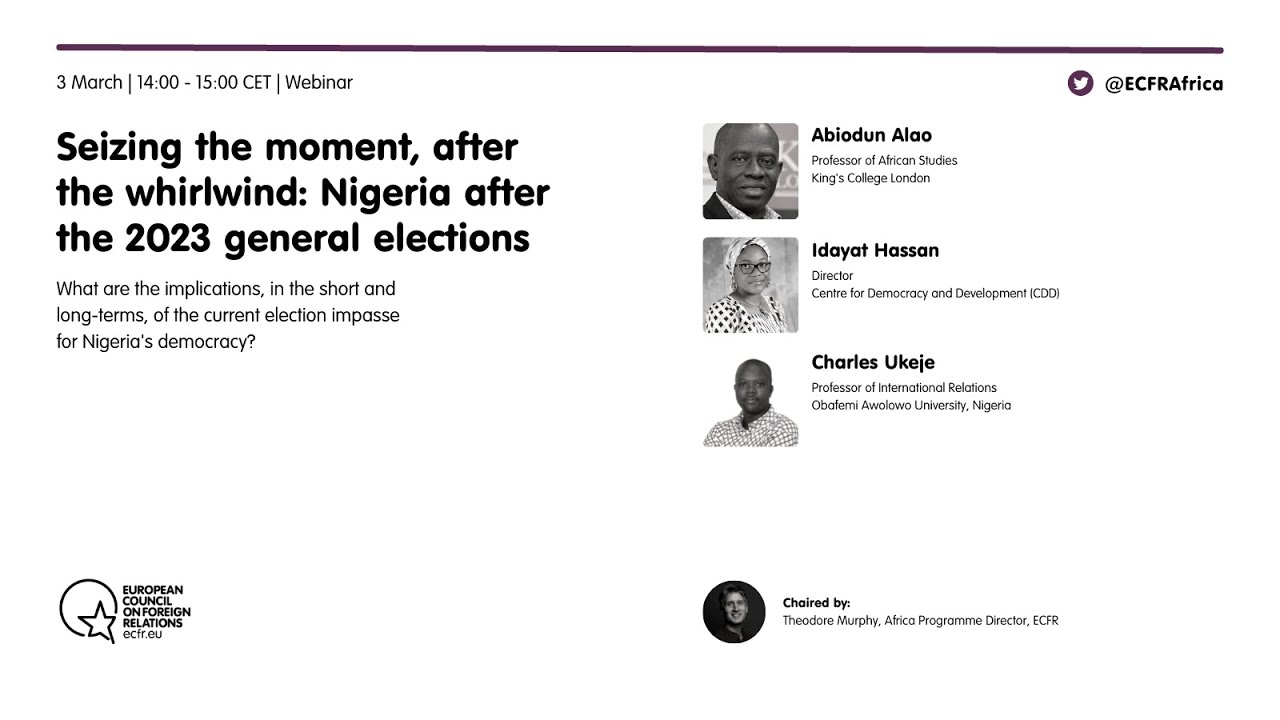Seizing the moment, after the whirlwind: Nigeria after the 2023 general elections
Guests
Abiodun Alao, Professor of African Studies, King’s College London
Idayat Hassan, Director, Centre for Democracy and Development (CDD)
Charles Ukeje, Professor of International Relations, Obafemi Awolowo University, Nigeria
Chaired by
Theodore Murphy, Director, Africa Programme, ECFR
The just-concluded general elections in Nigeria throw-up multiple contradictions. Bola Ahmed Tinubu, the declared winner, cannot resolve these by simply waving the proverbial magic wand. Arguably the biggest contradiction is that the ruling party, the All-People’s Congress, APC, will be succeeding itself despite a legacy of endemic insecurity, a moribund economy, and a deeply fractured polity.
Even though achieving the constitutional threshold, the President-elect did not impress the majority of electorates, gaining only about 40% of popular votes. He will be presiding over a leviathan that, for the most part, is badly bruised on all sides.
With a bitterly fought election, one in which previous political alliances dissolved, a new government must contend with myriad challenges. It requires support to bridge the country’s ethnic, political, and religious divides. Nigeria’s international partners, especially the EU and its member states, have a role to play.
What are the implications, in the short and long-terms, of the current election impasse for Nigeria’s democracy? What are the ‘low-hanging fruits’ in terms of policies and priorities that the new government must tackle decisively to restore trust and avert looming post-election challenges? What are the opportunities for the EU and EU member states to cooperate with the new government towards the post-election priorities?

